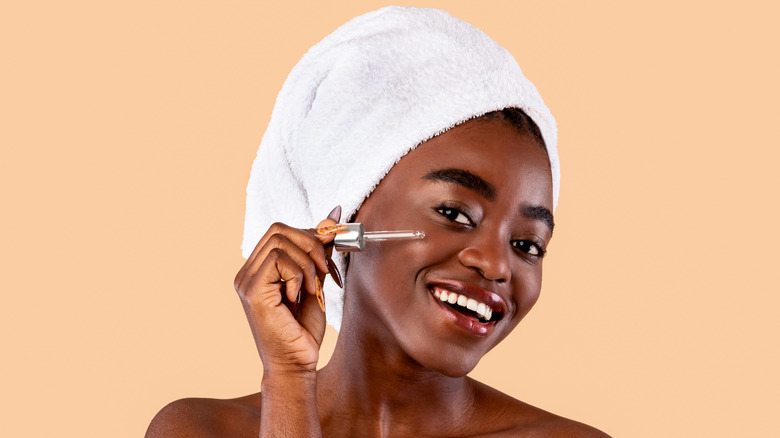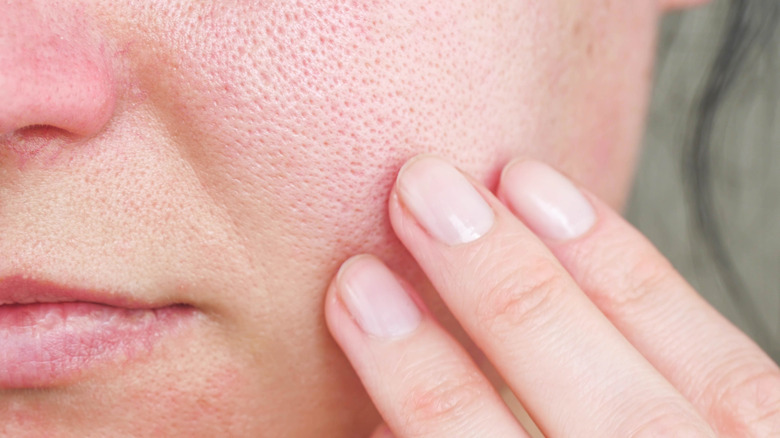If Your Skin Reacts Like This, You're Using Too Much Retinol
Retinol is a type of retinoid and a derivative of vitamin A used in anti-aging skincare products. In order for retinol, an antioxidant, to do its magic on the skin, it must first be converted in the skin to its active form, retinoic acid, after which it can be incorporated into the skin cells and affect their behavior (per Byrdie). Specifically, it can stimulate skin cell metabolism and encourage collagen production. "Its magic is in its ability to resurface the skin's texture for a smoother, more even-toned look," Renée Rouleau, an esthetician and the founder of her eponymous skincare line, told Byrdie.
Because of its many benefits, retinol is considered a key ingredient in a gold standard skincare regimen. "Using a well-formulated and stable product with retinol will visibly reduce the appearance of sun damage, brown spots, lines, wrinkles, and large pores," Rouleau said via Byrdie. By causing skin cells to turn over, retinol also helps brighten dull skin (per The Insider). Plus, according to a 2017 study published in Dermatology and Therapy, retinol is highly effective in treating both inflammatory and non-inflammatory acne.
Side effects of retinol
While retinol is linked to a number of amazing skin benefits, dermatitis — a general term for skin irritation — can be an unwelcome side effect. Common signs of dermatitis include skin dryness, flaking and peeling, redness, and tiny bumps or inflammation appearing around the mouth or under the nose and eyes (per Mayo Clinic). Dermatitis can occur when over-the-counter retinol products are misused — that is, used too frequently or using a concentration that is too strong for your skin (via Mindbodygreen). If you see signs of skin irritation while using retinol, you should use your product less often, switch to a product with a smaller percentage of retinol, or discontinue use until you get your skin back on track.
Fortunately, there are things you can do to help your skin recover from retinol-induced dermatitis. For one, use very gentle cleansers. Mindbodygreen recommends face washes with colloidal oat or manuka honey or any product marketed as "milky." Also, regularly apply calming moisturizers that can help hydrate your skin and repair your skin barrier or the outermost layer of your skin. Finally, when you do go back to using any retinol product, The Healthy advises always using a minimum of SPF 30 on your face to prevent sun damage.


